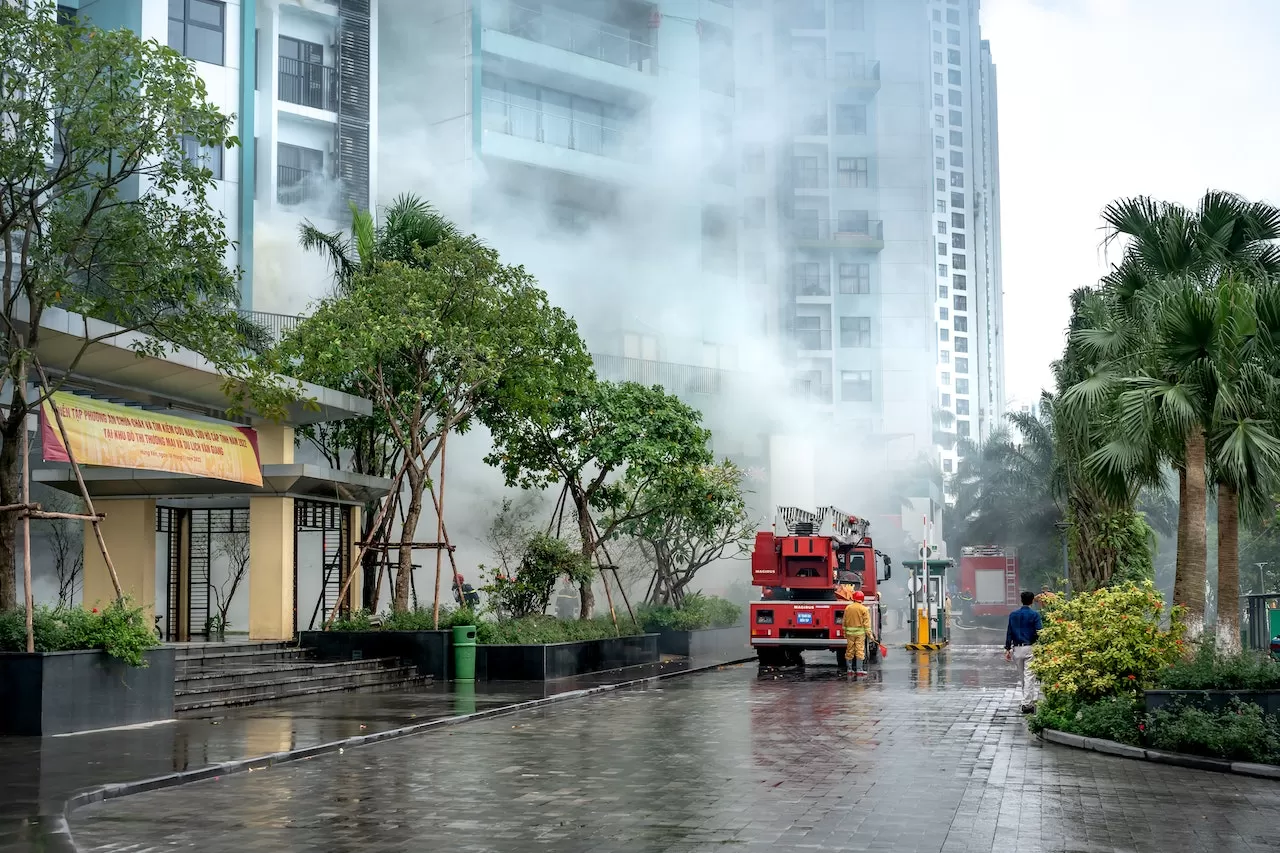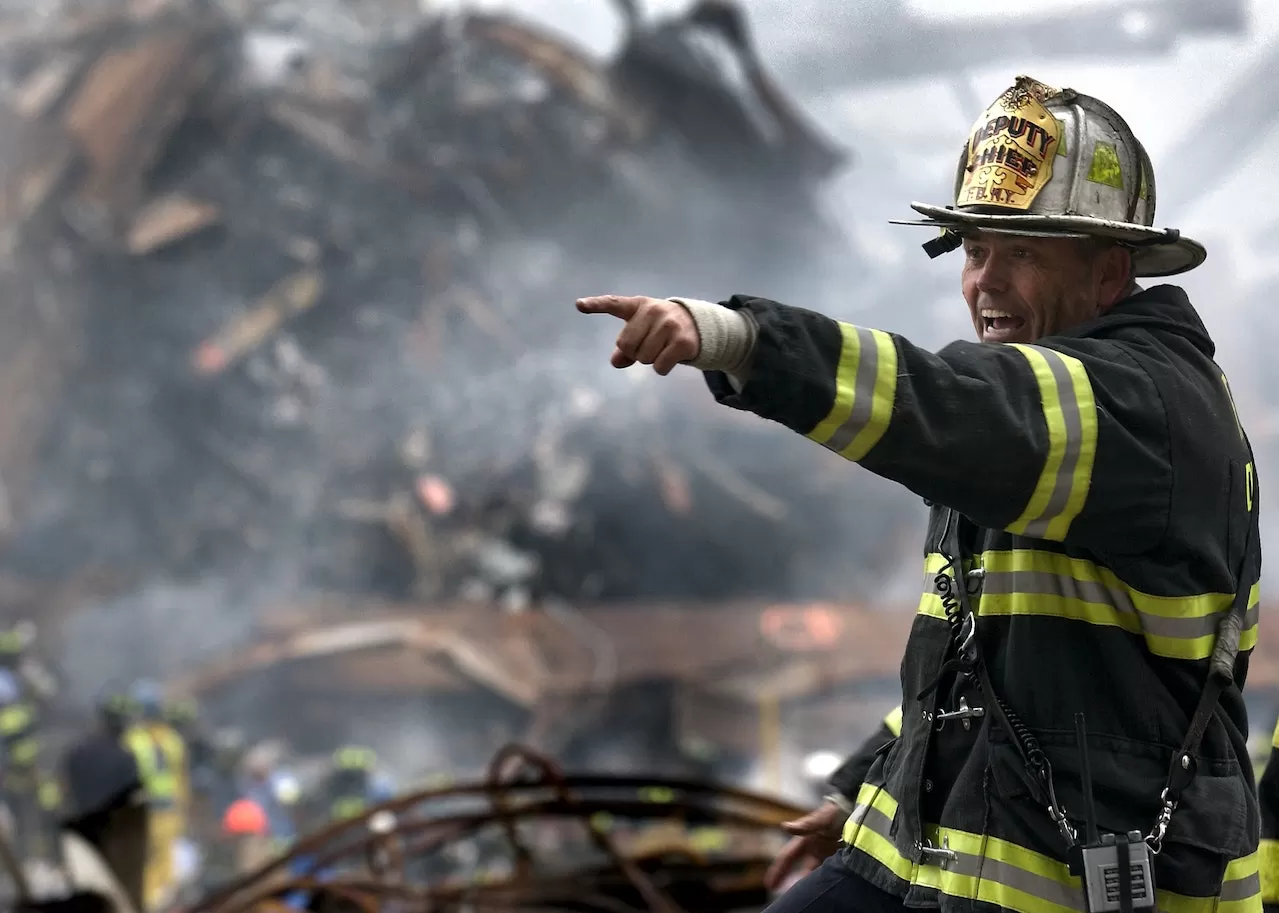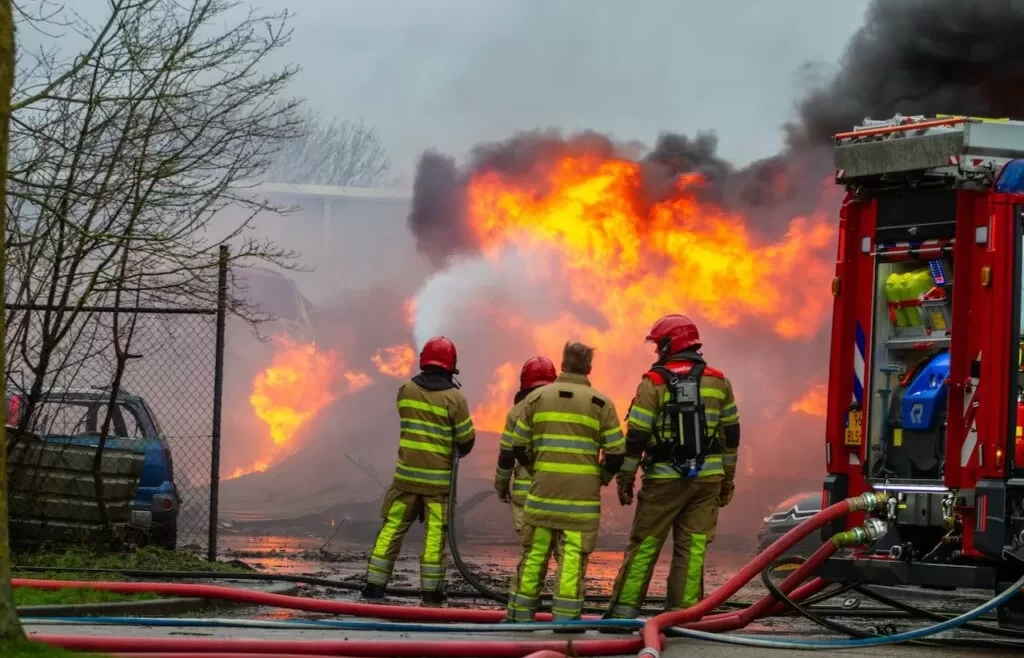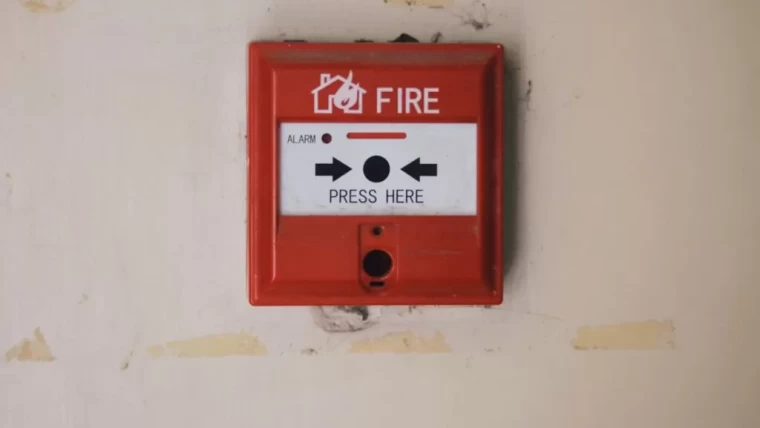Fire alarms for commercial buildings are not just a safety precaution, they are legally required. If you own a commercial building you must have a fire alarm in place, and that fire alarm must comply with local and state laws. Fire alarms for commercial buildings are necessary on a number of fronts.
In taking a look at fire alarms for commercial buildings, we can get a sense of the different types of fire alarms. There are some choices when it comes to fire alarms for commercial buildings. Even though people are required to install fire alarms for commercial buildings, there are some choices when it comes to these systems.
Fire alarms for commercial buildings are designed to achieve two important things. They provide maximum safety for all building occupants, and they protect your assets by making sure problems can be addressed before they become catastrophic.
What are commercial fire alarm systems? What are the different types of fire alarms for commercial buildings? And how can you get your commercial building into compliance with the proper fire alarm system? This guide will give you basic information on fire alarms for commercial buildings.
What are commercial fire alarm systems?

Commercial fire alarm systems are alarm systems that are specifically designed to meet the complex needs of commercial structures and commercial operations. Unlike home fire alarm systems, these systems are designed to address specific needs in places that have specialized risks.
Commercial fire alarm systems are made to ensure the safety of occupants in commercial operations. This means people who are in places that are at high risk and people in places that have specialized demands are given plenty of warning in the event of an emergency,
Commercial fire alarm systems are also designed so that commercial property owners are in compliance with fire codes and insurance demands. Since local, state, and federal fire codes demand that certain priorities be met with commercial fire alarm systems, these types of systems are designed to meet those demands.
Type of fire alarms for Commercial Buildings
There are different types of commercial fire alarm systems. Since not all commercial buildings are the same, there are different systems to meet specific needs. Large operations will not be able to use the same commercial fire alarm systems as small structures. The different types of commercial fire alarm systems include:
Conventional Fire Alarms
Conventional fire alarm systems are the most traditional systems. These are the type of commercial fire alarm systems that make no distinctions between the signals they receive from the various detection devices. Conventional fire alarm systems are best suited for sites where it is easy to determine the nature of the device signal. For example, access to smoke alarms and heat sensors is easy and you would have no real issue figuring out exactly what is happening and how to respond.
These devices require significant installation since each device is wired directly to the central fire alarm control panel. This means you will need to install a lot of conduits, and the installation process requires a lot of labor. Conventional commercial fire alarm systems are limited to the extent that you can only connect a certain number of devices. These types of systems work well for smaller operations with open spaces.
Conventional commercial fire alarm systems generally do not cost as much as other types of systems. They are also fairly simple and straightforward to operate. Conventional commercial fire alarm systems are great for more traditional commercial operations with open spaces.
Addressable Fire Alarms
Addressable fire alarm systems are different from conventional fire alarm systems in that they make it possible to determine the exact detection device and its precise location. Thus these are called addressable because you can address each site that sends a signal. Addressable fire alarm systems are great for large operations where it can be difficult to physically investigate the source of a signal. Large buildings can make it difficult to physically investigate individual detection devices in a timely manner. Addressable fire alarm systems offer you immediate information in the event that a detection device is triggered and sends a signal, and this makes it easier to take appropriate action.
Whereas conventional fire alarm systems are built on individual wires from each detection device to the fire alarm control panel, addressable fire alarm systems are wired on a loop. Each device along the circuit is tied into this loop. This means each device can operate independently and even if the loop is interrupted, it can still receive and send signals from one end or the other.
One of the chief benefits of addressable systems is that it helps save time when a device sends a signal. Because each device can be pinpointed at the control panel, response times are fast. This helps stop issues before they become bigger problems. The disadvantage of addressable fire alarm systems is that they are expensive. The cost of installing an addressable fire alarm system is much higher than that of a conventional fire alarm system.
Hybrid Fire Alarms
Hybrid fire alarm systems are sometimes called analog addressable fire alarm systems. The hybrid does exactly what it sounds like: it combines features of the conventional fire alarm system with those of an addressable fire alarm system. Hybrid systems use localized zone detection systems, but it combines monitoring options that are associated with the addressable fire alarm system.
What sets the hybrid fire alarm systems apart is that they use isolated detection devices just like a conventional system. But the signals sent by each detection device are converted into a digital signal which allows the control panel to know where each signal comes from, and which detection device sent the signal. You can have the benefits of detection devices in all zones of protection combined with the benefits of an addressable system and the ability to react quickly and accurately.
How do commercial fire systems operate?

Since each type of system functions according to a specific set of signals between detection devices and the control panel, each system operates a little differently. The ways these systems operate come down to some basic ideas.
Conventional
In a conventional system, detection devices are triggered and this sends a signal. Smoke detectors for example pick up the presence of smoke and this sets off the signal from the device. This signal is sent as an analog signal directly to the control panel. The control panel can then initiate alarms and suppression systems. For the conventional fire alarm system, each device operated independently of all the others. If one device is triggered, things like fire alarm sounds and lights are initiated for the entire building.
Addressable
With addressable fire alarm systems, each device communicates through digital signals instead of direct currents to the control panel. Since each device communicates with a computer, you can assign each device a specific priority within the fire alarm system. This means the control panel can reveal which devices have been triggered, exactly which type of trigger has occurred, and the appropriate action that should be taken.
Hybrid
In hybrid systems, each device is set up in the same way as a conventional system, but each device is then wired into the control panel in a way that is much more like the addressable system. Specific zones within a structure are monitored like a conventional system, but the information received by the control panel is in the order of an addressable system. There is a hybrid analog/digital signal system at work in the hybrid fire alarm system.
In the hybrid system, the sensors and detection devices use an analog system that sends an analog signal. But this signal is then converted into a digital signal which allows the control panel to isolate the location of a problem and the precise nature of the problem.
Fire Compliance for Commercial Buildings
The Occupational Safety and Health Administration provides a detailed set of guidelines and laws for fore compliance for commercial buildings. The type of fire alarm system you choose will in some ways depend on how your building and your business are listed in these guidelines and laws. OSHA standards apply to different buildings in different ways. Variables do not just depend on the type of building, they also depend on the type of business you operate. Fire protection guidelines can be broken down into five categories:
Evacuation routes
Unless your building is the right size, occupancy, and floorplan to allow one route, OSHA requires commercial buildings to have at least two evacuation routes. These must be open and free of obstructions, and the doors on these evacuation routes must be marked with OSHA-compliant signs.
Fire extinguishers
Your commercial property must contain the correct number of fire extinguishers for the type of building and the types of potential hazards your building can contain. Fire extinguishers must be kept in proper working order, and employees must be trained on how to properly use them. In some cases, evacuation training can substitute for fire extinguisher training.
Evacuation planning
Employers are required to have a written evacuation plan that provides details on evacuation routes and evacuation procedures. Employees should be trained on proper evacuation procedures and which evacuation routes to take in the event of an emergency. Employees should also be trained on how to assist people during an evacuation.
Fire prevention
There needs to be a written fire prevention plan. The plan needs to include things like how to properly and safely store hazardous materials and how to prevent ignition, the kinds of things that can cause ignition, and ignition catalysts such as boilers, ovens, and smoking areas.
Fire suppression
Along with a fire alarm system, commercial buildings are required to have a fire suppression system. This can be something like a sprinkler system. Businesses that use hazardous chemicals need to have a sprinkler system that can disperse chemical agents. The fire suppression system needs to have an alarm system specific to this system.
All of these guidelines are listed in detail on the OSHA website. It is important to understand that commercial properties are regulated by more than just one agency and you need to know and understand the laws specific to your type of business. Fire alarm systems for commercial properties are not just a matter of choice. They are required by law.
Chapter Nine of the Florida Building Code provides details on the laws and regulations that pertain to commercial properties in the State of Florida. These guidelines will help you understand the type of fire alarm system your building is required to have, including things like carbon monoxide detectors.
If you own commercial property you know how important it is to protect that property and the occupants of the property. Whether you need to provide safety for your employees or your customers, it is essential that you take all precautions to make that property as safe as it can be. This is the main reason for fire alarm systems for commercial properties.
Beyond the need to protect people and property, fire alarm systems for commercial properties are required by law. It is critically important that you understand the type of fire alarm system the law demands that you have for your commercial properties. To keep your business in operation, you must be in compliance with state and federal laws that pertain to fire alarm systems for commercial properties.
The process of choosing the right fire alarm system for commercial properties can be made easier by consulting professionals. Circle Security Solutions provides the best service and products for fire alarm systems for commercial properties. In addition to fire alarm systems, Circle Security Solutions offers informative security & fire alarm systems, 24/7 central station monitoring, HD video surveillance cameras & HD digital video recorders, and home control & automation systems for your South Florida home or business. With locations in Miami and Boca Raton, we proudly and regularly service Palm Beach County, Broward County, and Miami-Dade Counties.



